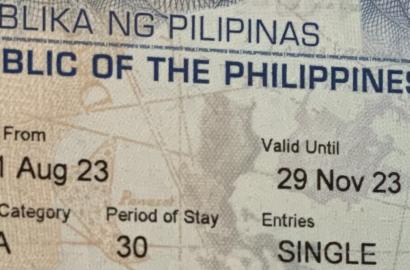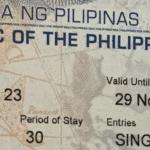Explore Our Exciting New Property Listings Now Available in Prime Locations!
The Philippines is a destination of unmatched natural beauty, vibrant culture, and warm hospitality. However, a successful and stress-free trip begins long before you set foot on its shores. Here is a comprehensive checklist of things you should sort out before arriving in the Philippines.
1. Money
Currency
The official currency in the Philippines is the Philippine Peso (PHP). It is recommended to carry some cash for small purchases, especially in rural areas where card payments might not be accepted.
Exchanging Money
- Exchange money at banks or authorized money changers for better rates.
- Avoid exchanging currency at airports as they often have lower rates.
Credit and Debit Cards
- Major credit cards like Visa and Mastercard are widely accepted in urban areas, but cash is king in rural locations.
- Inform your bank of your travel plans to avoid your card being flagged for suspicious activity.
Ways to Transfer Local Funds
- Bank Transfers: Set up an account with a global bank that has partnerships in the Philippines, such as HSBC or Citibank.
- Mobile Wallets: Consider downloading apps like GCash or PayMaya, which allow for seamless local transactions.
- Remittance Services: Services like Western Union and Wise offer reliable ways to send funds.
2. Travel Itinerary
Having a detailed travel plan ensures a smoother journey.
Plan your route and book transportation for inter-island travel as flights and ferries can fill up quickly.
Research attractions and activities you’d like to experience, especially in peak seasons.
3. Accommodation
Book accommodations ahead of time, especially during the high season (December to May). Options range from budget hostels to luxury resorts. Consider locations near your planned activities to save on travel time.
Recommended Booking Platforms
- Agoda
- Booking.com
- Airbnb
4. Visa
Ensure you have the appropriate visa for your stay:
Tourist Visa: Confirm if your country allows visa-free entry or requires a visa.
Extension Options: Check the process for extending your visa if you plan a longer stay. Refer to the Bureau of Immigration for details.
5. Useful Numbers
Save these important contact numbers before your trip:
- Emergency Services: 911 (nationwide)
- Tourist Assistance: +63 2 524-1728
- Philippine National Police (PNP): +63 2 8723-0401
- Embassy or Consulate: Locate the nearest office for your country.
6. Useful Apps to Have Installed
Make your trip more convenient with these apps:
- Transportation: Grab (ride-hailing), Waze (navigation)
- Local Transactions: GCash, PayMaya
- Translation: Google Translate
- Travel: Klook (activities), Agoda (accommodation)
- Food Delivery: Foodpanda, GrabFood
7. Communication
Calls
- Purchase a local SIM card from providers like Globe, Smart, or DITO upon arrival.
- Opt for prepaid packages that include call, text, and data options.
Wi-Fi
Many cafes, hotels, and malls offer free Wi-Fi, but speeds may vary.
Portable Wi-Fi devices are available for rental if you need constant connectivity.
8. Emergency Contacts
Prepare a list of emergency contacts, including:
- Family members or close friends
- Your embassy or consulate
- Hotel reception or host’s contact information
9. Appropriate Clothing
The Philippines has a tropical climate, so pack light and breathable clothing:
- For City Trips: Casual outfits such as T-shirts, shorts, and comfortable footwear.
- For Outdoor Adventures: Swimwear, hiking shoes, and a light rain jacket.
- Respect Local Customs: Modest clothing is advised when visiting religious sites.
By organizing these essentials before your trip, you’ll ensure a smooth, enjoyable experience in the Philippines. Whether you’re visiting for leisure or long-term exploration, being prepared will make all the difference. Safe travels!
Related posts:
An updated guide for temporary visitors to the Philippines, including 2024 visa extension fees, streamlined entry requirements, and immigration office details in major cities.
Whether you're visiting as a tourist, planning to retire, or exploring investment opportunities, understanding the visa process and departure requirements is essential.






 Entry Guidelines for Temporary Visitors to the Philippines
Entry Guidelines for Temporary Visitors to the Philippines
 Jamaica’s Oil Discovery: A New Era of Investment and Development Opportunities
Jamaica’s Oil Discovery: A New Era of Investment and Development Opportunities
 The Best Beaches in the Philippines: Tropical Paradises Await
The Best Beaches in the Philippines: Tropical Paradises Await